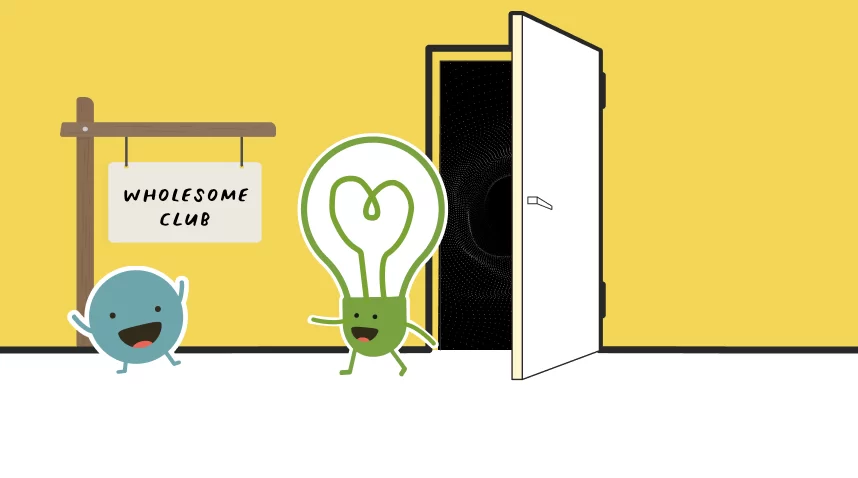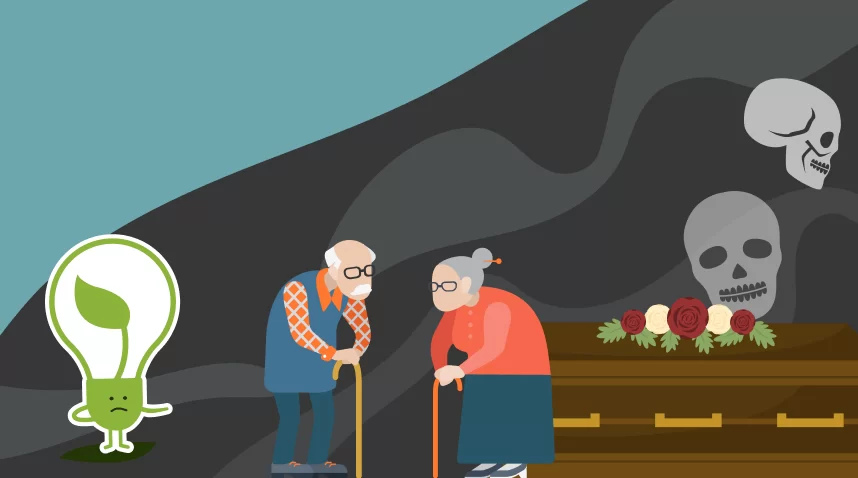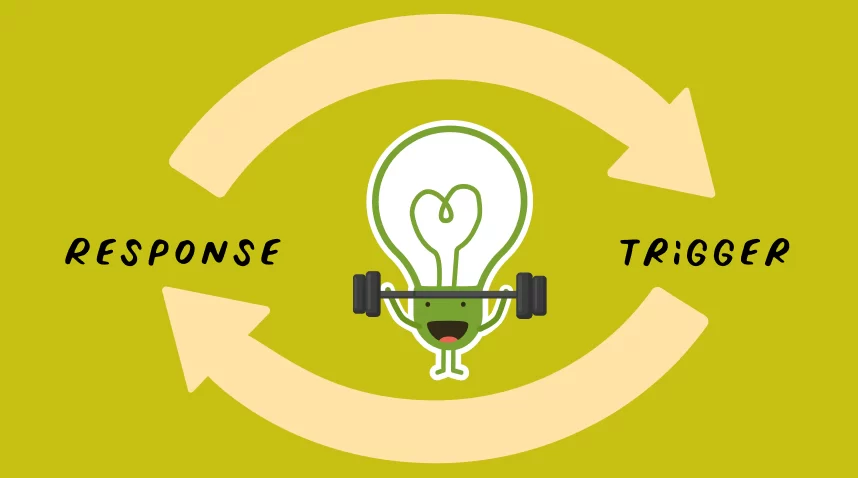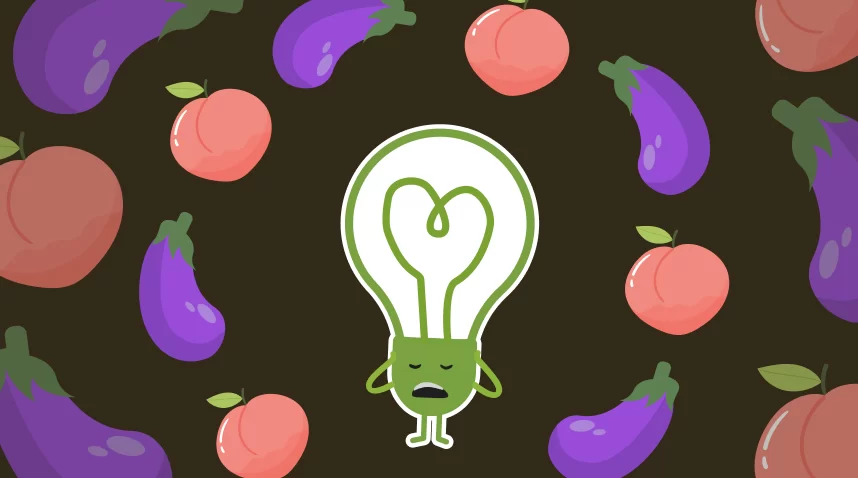Editor’s note: This is the last part of a two-part article on how Joshua (not his real name) met the Dhamma through his search in finding the solution to his porn addiction. In this article, he shares 5 methods he applied to fix his porn addiction.
TW: Sexual abuse is discussed in this article
TLDR: Joshua shares 5 effective methods he applied to get himself out of the addictive porn spiral. This includes changing his environment, revaluing porn, reflecting on drawbacks, seeking help, and substituting our responses to triggers.
I shared my journey into the Dhamma via my porn addiction in the last article. It is probably the strangest answer to ‘How did you come to find the Dhamma?’.
I would like to share 5 actionable ways one can slowly curb their addiction. This is not meant to be professional advice and one should seek professional help for addiction when it is impeding their normal daily functions.
The following 5 ways are what helped me through the darkest periods of my life. May this benefit your journey:
- Change your environment to change your habits
- Reflect on the drawbacks of chasing desire
- Revalue by reflecting on the grossness of the body
- Seek counselling support
- Replace the response to triggers with something more wholesome
1. Change your environment to change your habits

Our environment shapes us more than we think. We don’t fail to create new habits because our willpower is weak but rather our system for positive change is weak. One system we can change is the environment that we interact with.
For me, I opened my room doors widely even when I was sleeping to keep myself accountable. This increased the barriers to surfing porn when I was alone in my room.
I also took more drastic actions to alter my social circles and hangout spots to not put myself in situations where I was tempted or lustful. Until my mind was stable, I had to remove myself from such situations for the time being.
However, I also eventually stopped visiting night hangout spots and hung out more with Dhamma friends in more conducive environments. The soil that I was feeding my mind needed to be fertile for wholesomeness and not unwholesomeness.
In addition, I also used Mac software, self-control, to block my access to porn sites. This made it harder for me to access them when I lost control. It is amazing how far a craving mind can go when it is filled with desire. A ton of suffering in all the pursuit for something temporary and unskillful.
2. Reflect on the drawbacks of chasing desires
The Buddha often encouraged his lay followers to contemplate the drawbacks of unwholesomeness in Pataligama sutta:
“There is the case where an unvirtuous person, by reason of heedlessness, undergoes the loss/confiscation of great wealth. This is the first drawback coming from an unvirtuous person’s failure in virtue.
“Furthermore, the bad reputation of the unvirtuous person, failing in virtue, gets spread about. This is the second drawback coming from an unvirtuous person’s failure in virtue.
“Furthermore, whatever assembly the unvirtuous person, failing in virtue, approaches — whether of noble warriors, brahmans, householders, or contemplatives — he/she does so without confidence & abashed. This is the third drawback coming from an unvirtuous person’s failure in virtue.
“Furthermore, the unvirtuous person, failing in virtue, dies confused. This is the fourth drawback coming from an unvirtuous person’s failure in virtue.
“Furthermore, the unvirtuous person, failing in virtue — on the break-up of the body, after death — reappears in a plane of deprivation, a bad destination, a lower realm, a hell. This is the fifth drawback coming from an unvirtuous person’s failure in virtue.”
The sutta goes from subtle loss in this life to complete suffering in the next. It is also a poignant reminder of how things can go south extremely quickly when we chase our bad habits.
Pursuing such sense desires is as if one is licking honey from a knife’s blade as the Buddhist saying goes.
When the honey is gone, all that is left is pain/remorse. I wrote down pointers to reflect on if the desire suddenly arose within me.
The drawbacks included the shame of having succumbed to my unwholesome desires as a student of the Buddha, the shame of facing my Dhamma friends, and also a deeper shame of having become a participant in the oppressive porn industry.
Having watched youtube documentaries on the industry and how it often ensnares young women and subjects them to horrific mental & physical abuse, made an imprint on me.
How many young women’s physical and mental health is ruined by the industry and how many are stuck and suffering? In addition, how many young people are exposed to these videos and conditioned to see themselves or women in a warped manner?
My surfing enabled this billion-dollar industry of exploitation and pain to thrive. No amount of ‘animal liberation’ that I did could undo the pain inflicted by my participation if I continued. You can watch more here and here about the industry.
3. Revalue by reflecting on the grossness of the body

Buddhist monastics would often quiz their disciples,
Master: ‘Do you love your hair?’
Lay Disciple: ‘Yes’
Master: ‘Okay, what if a bunch of your hair drops into your food, would you still eat your food with your hair in it if you love it so much?’
Lay Disciple: ‘No Sir’ *a moment of insight arises*
Teachers often make us question our assumptions about the body and its perceived beauty.
I recall a teacher asking “If our body was truly beautiful & attractive, why do many people put on concealers/make-up every day? It is because the body is constantly ageing and filled with gross things (e.g. faeces, toxins), hence we cover it up…even the dead are not spared, we embalm them and put on make-up.
Skin is beautiful until skin flakes fall into your food. A person’s body is beautiful until the person is dead and they start rotting. Reflecting on the unattractiveness of the body is called ‘Asubha’.
Asubha meditation is a meditation where the object of awareness is placed on the unattractiveness of the body. This is often used to counter lust in an individual. It is typically coupled with metta meditation to neutralise any aversion that might arise from contemplating the body’s unattractiveness.
A guided meditation can be found here, and a Dhamma teaching about it can be found here. However, it should be attempted with guidance from good meditation teachers especially if it is your first time.
Another way, is to ask yourself, “What value does porn bring to my life?” “Is this really how I want to spend my life?” “Looking at naked people?”.
By using such thoughts, one can reduce the impact of lust. To reflect on what value porn brings?
4. Seek counselling support to help you through the tough periods
One of the best things about Buddhism is that it does not judge or condemn. It simply provides guidance and support. I found this to be incredibly reassuring and it helped me to feel less alone in my struggle. Engaging with counselling support like Shan You Counselling, Dots Connection, Buddhist Free Clinic, helped to provide a Buddhist perspective to my pain and troubles.
In addition, I sought out online communities of people who recovered and were recovering as well, reading stories of success was truly inspiring.
There is hope and there is potential for change because the self is anatta (non-self).
One of them said, “By turning to Buddhism, I was able to recognize that my addiction was a symptom of underlying suffering. I was able to face my suffering, and then find the strength to overcome it.”
That person’s testimony started my journey into the Dhamma. When we bring to light our darkest struggles, we give others an opportunity to light up their dark inner world as well!
5. Replace the response to triggers with something more wholesome

With a newfound awareness of my addiction, I was able to start making conscious decisions about how I wanted to respond to them.
“One by one, little by little, moment by moment, a wise man should remove his own impurities, as a smith removes his dross from silver.” – Dhammapada 239
The act of removing those impurities starts with recognising the trigger and not letting the habitual loop play out. Furthermore, we can recognise the trigger and then replace it with a wholesome action that leads to the same outcome.
For example, being restless with nothing to do in the morning might make me want to watch porn. The outcome? Wanting to feel relieved from restlessness. Recognising this trigger, I then head to the gym to remove myself from home and do a strenuous workout. This makes me feel less restless (and maybe breathless), achieving the outcome the trigger intends to make.
Hence, by replacing the action after the trigger, I am able to slowly release the grip that the trigger has on me to surf porn.
It might take time to notice the triggers, hence, writing down the triggers is useful for one to make alterations to their reactions to the triggers.
Conclusion
With the help of the Dhamma and other support, I eventually broke free from my addiction. It was a long process, and there were certainly ups and downs along the way.
But in the end, I was able to overcome my addiction to lead a healthier and more fulfilling life.
To this day, I still keep the practice of Dhamma close to my heart and am grateful for the wisdom and guidance it has provided me. It has been a source of strength and support. I am confident that I can continue to apply Dhamma to help me stay on the path of recovery.
Wise Steps:
- Know your triggers for bad habits to arise, developing mindfulness is critical in catching those moments
- Seek professional help, there is no shame in raising your hand to ask for help


